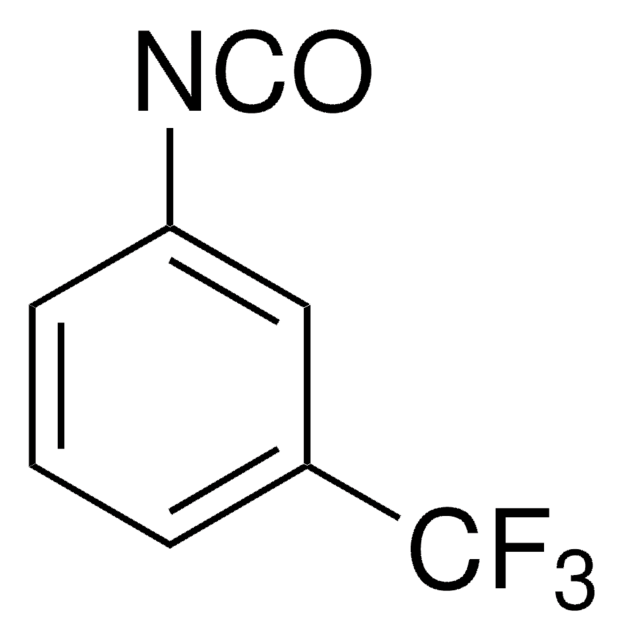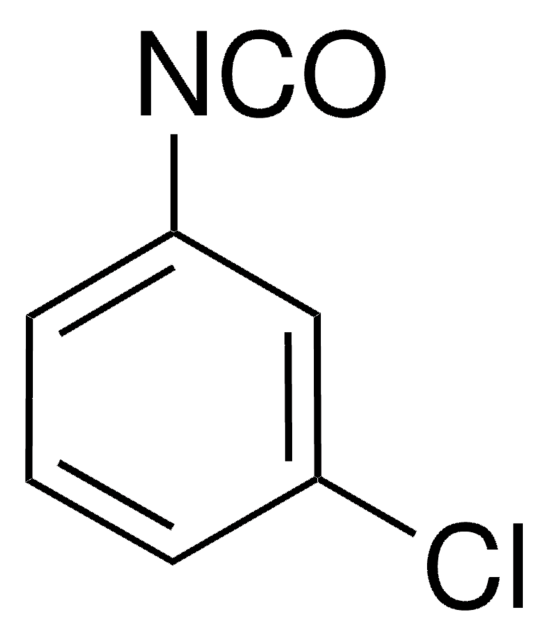250821
4-(Trifluoromethyl)phenyl isocyanate
99%
Synonym(s):
α,α,α-Trifluoro-p-tolyl isocyanate
About This Item
Recommended Products
Quality Level
Assay
99%
form
liquid
refractive index
n20/D 1.474 (lit.)
bp
58-59 °C/10 mmHg (lit.)
density
1.31 g/mL at 25 °C (lit.)
storage temp.
2-8°C
SMILES string
FC(F)(F)c1ccc(cc1)N=C=O
InChI
1S/C8H4F3NO/c9-8(10,11)6-1-3-7(4-2-6)12-5-13/h1-4H
InChI key
QZTWVDCKDWZCLV-UHFFFAOYSA-N
Looking for similar products? Visit Product Comparison Guide
Related Categories
Application
- fluorescent photoinduced electron transfer (PET) chemosensors
- 2-ethyl-6-[(4-trifluoromethylphenylcarbamoyl)hydrazino]-benzo[de]iso-quinoline-1,3-dione, an amidourea-based sensor for anions
- 1,8-naphthalimide based colorimetric and fluorescent sensor for anions
Signal Word
Danger
Hazard Statements
Precautionary Statements
Hazard Classifications
Acute Tox. 4 Dermal - Acute Tox. 4 Inhalation - Acute Tox. 4 Oral - Eye Irrit. 2 - Resp. Sens. 1 - Skin Irrit. 2 - Skin Sens. 1 - STOT SE 3
Target Organs
Respiratory system
Storage Class Code
10 - Combustible liquids
WGK
WGK 3
Flash Point(F)
156.2 °F - closed cup
Flash Point(C)
69 °C - closed cup
Personal Protective Equipment
Choose from one of the most recent versions:
Already Own This Product?
Find documentation for the products that you have recently purchased in the Document Library.
Customers Also Viewed
Our team of scientists has experience in all areas of research including Life Science, Material Science, Chemical Synthesis, Chromatography, Analytical and many others.
Contact Technical Service













